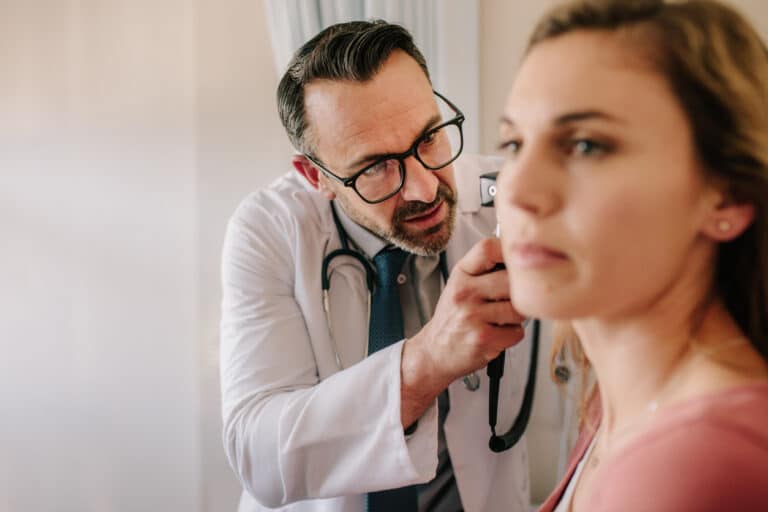Roughly 15% of adults in the U.S. have experienced some level of hearing loss, yet many don’t take steps to address it. If you’ve taken the important first step and scheduled a visit with a hearing specialist, it’s helpful to know what to ask during that initial consultation. Coming prepared with thoughtful questions can make a big difference in how informed and confident you feel throughout your hearing care journey.
Making the Most of Your Initial Visit

Your first appointment isn’t just about gathering test results, it’s an opportunity to better understand your hearing health and explore options that align with your daily life. By asking the right questions, you help your audiologist personalize your care and empower yourself to make informed decisions.
Consider these examples for topics to discuss with your hearing specialist at your first appointment.
Can You Explain the Type of Hearing Loss I Have?
After your hearing test, your specialist will be able to explain whether you have sensorineural, conductive or mixed hearing loss. Each type originates from different causes and impacts your hearing in specific ways.
Why it matters:
- Understanding your diagnosis can clarify whether your hearing loss is linked to aging, exposure to loud noise or a medical condition.
- It helps identify which sounds you’re missing, such as high-pitched voices or background noise.
- This insight will guide your treatment plan and how you can protect your remaining hearing.
Should I Be Worried About the Noises I’m Exposed to Every Day?
Noise-related hearing damage doesn’t happen all at once, it builds gradually with repeated exposure. Discussing your daily environment can help your audiologist spot potential hazards.
Why it matters:
- If you live in a bustling city with constant traffic, construction noise or attend loud events like concerts at Caloosa Sound Amphitheater, your risk of hearing damage is higher.
- Your provider can suggest practical protection strategies, such as custom earplugs or hearing protection for work or hobbies.
What Hearing Aids or Assistive Technology Would Work Best for Me?
If hearing aids are recommended, your audiologist will help you navigate the many available options. From discreet in-ear models to tech-enhanced devices with Bluetooth® capabilities, the right choice depends on your lifestyle.
Why it matters:
- Devices should suit your daily habits, hearing loss type and even your personal style preferences.
- Your hearing specialist will ensure you’re matched with technology that fits well and functions effectively.
- You’ll also get expert help adjusting and maintaining your devices for optimal performance.
Can You Check for Balance Issues or Ringing in My Ears?
Hearing clinics often assess more than just hearing, they can screen for dizziness or tinnitus, especially if you’ve noticed related symptoms.
Why it matters:
- Hearing and balance systems are connected, so it’s important to evaluate them together.
- Tinnitus and balance disorders are common in high-stress or loud work environments.
- Early detection helps avoid misdiagnosis or neglecting treatable symptoms.
Additional Things to Discuss
Don’t hesitate to bring up anything related to your hearing or balance health. Beyond your initial test results, consider asking about:
- Your follow-up schedule and long-term care plan.
- How to clean and maintain hearing aids.
- Mobile apps or accessories that work with your devices.
- Strategies for communicating more easily in noisy settings or public places.
Your first appointment is more than a check-up, it’s the beginning of a partnership with your audiologist. With the right questions and a proactive mindset, you’ll be better prepared to take control of your hearing health.
Ready to take the next step? Contact Gulf Coast Audiology to book your consultation and start your personalized path toward better hearing.
